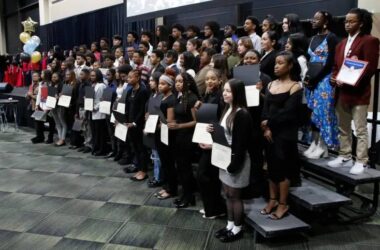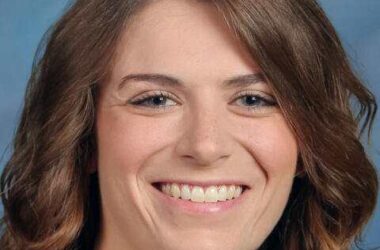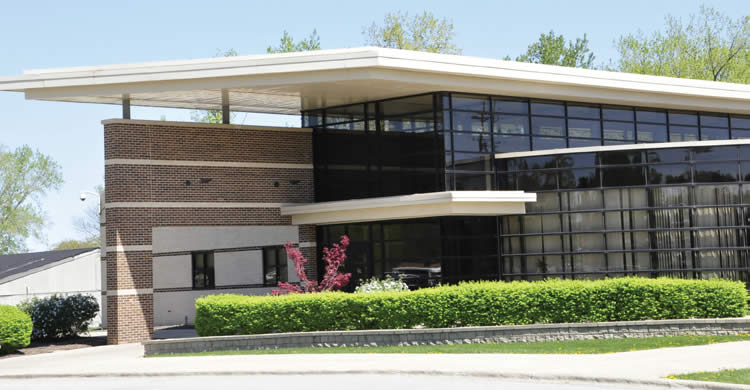CHICAGO–(ENEWSPF)–September 12, 2014.
By: Erica Masini
Addressing a full house of students, professors and consular representatives on Sept. 11, former President of Brazil Fernando Henrique Cardoso issued a challenge during Roosevelt University’s 21st Franklin and Eleanor Roosevelt Distinguished Lecture. He called for citizens to actively participate in the revitalization and reinvention of representative democracy, and for international institutions to respond to the demands of a changing society.
Cardoso, an internationally known sociologist and the president of Brazil from 1995 until 2003, was invited to Roosevelt to receive its highest honor, the Doctor of Social Justice degree, honoris causa. President Chuck Middleton, College of Arts and Sciences Interim Dean Bonnie Gunzenhauser and Chicago College of Performing Arts Dean Henry Fogel presented the honorary degree to Cardoso, and afterward, Cardoso delivered a lecture titled, “Reinvention of Democracy: Reconciling demos and res publica.” The lecture, free and open to the public, drew students, members of Chicago’s Brazilian community, faculty members, and consular representatives from countries including Brazil, Mexico, Nepal and Taiwan.
A member of the Elders, a group of independent global leaders who work together on peace and human rights issues, Cardoso acknowledged the responsibility of speaking in the United States on the date of Sept. 11 and at a university named in honor of Franklin and Eleanor Roosevelt. Drawing from his academic and political background, Cardoso’s remarks underscored his beliefs in the evolving citizen identity, the challenges facing today’s political leaders and the impacts of globalization, social movements and communication technology on democracy.
“Our world’s citizens no longer accept the role of passive audience. They want the truth to be told to them, and they want to be sure that their contributions will be taken into account,” Cardoso said. “Democracies must become a space for collective dialogue and deliberation rather than simply an organized framework of institutions. It is no longer possible for a leader to impose without negotiating, to decide without listening and to go forth without explaining.”
Cardoso’s lecture sparked intellectual discourse in the more than 220 audience members as they mingled in the Congress Lounge and Sullivan Room on the second floor of the University. Senior communications and media studies student Andrew Jones, who lives on the international floor in the Wabash Building, engaged in a lively debate with his classmates as they reflected on Cardoso’s words.
“It was cool that Roosevelt students were able to come to something like this and hear from someone who has direct experience creating social change,” Jones said. “I liked the message he was putting out, too, that if institutions really want to change, they need to be a literal embodiment of social justice.”
The lecture was stimulating for faculty, too. David Faris, assistant professor of political science, said his students were already asking him when they could discuss Cardoso’s lecture in class.
“It was a great opportunity and extremely unique to hear what a former head of state has to say about the state of the world,” Faris said.
Sponsored by the Office of the President and the Center for New Deal Studies, the Franklin and Eleanor Roosevelt Distinguished Lecture series began in 1992. The series presents speakers that reflect on issues related to the legacy of Franklin and Eleanor Roosevelt and the New Deal. Previous lecturers have included Chicago native and American labor movement expert Dorian T. Warren, Surgeon General Regina M. Benjamin, M.D., Ambassador William vanden Heuvel and journalist Cokie Roberts.
Source: roosevelt.edu









